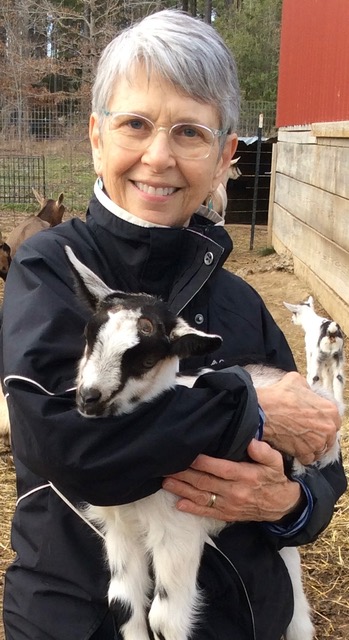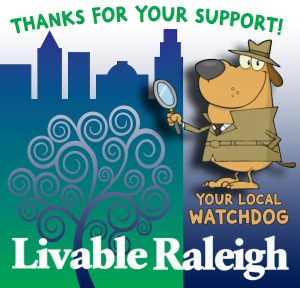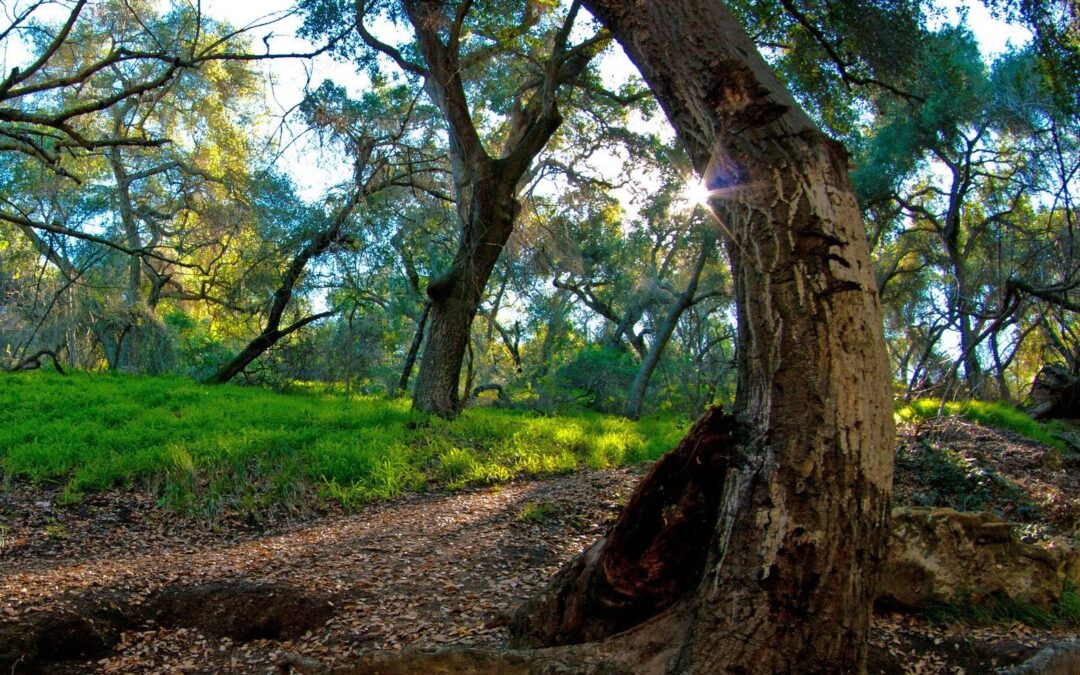
Marsha Presnell-Jennette began pulling weeds, mowing grass, and planting flowers and trees in Raleigh’s parks in the early 1970s when she was hired as the first woman to work on a gardening crew. She was promoted to lead the restoration of the Raleigh Rose Garden along with a crew of three other hard working women. From there she moved to a part time position as the gardener at the Ellen Mordecai Herb Garden at Mordecai Park.
Marsha’s work career changed but her interest in Raleigh’s parks and big trees has continued. From the mid 1990s until early 2000’s she served on the Parks, Recreation and Greenway Advisory Board. During those years she was vice chair of the Pullen Park master planning committee with Robin Moore as chair of the committee.
After completing her six year term on the PRGAB, Marsha advocated for a citizen lead committee to study preserving Raleigh’s two historic carousels.
Today the carousels at John Chavis Memorial Park and Pullen Park are housed in climate controlled environments that will ensure these treasurers are in operation for future generations of children.
In 2018 Marsha was appointed to the PRGAB. She is proud of Raleigh joining the Network of Biophilic Cities (nature rich cities) during her term of service on the Parks Board. She continues to be an advocate for our trees and the importance of a nature rich city for future generations.
RALEIGH – How is the city growing?
Raleigh – the Capital City, the City of Oaks, the first planned city in North Carolina. Approaching downtown Raleigh on Capital Blvd. the skyline tells the story of our growing city. And it is not a pretty sight. Raleigh is home to many interesting architectural creations such as the NC Museum of Art, the Life Science Building, NC Legislative Building, the Capital Building, Memorial Auditorium. Of course, these buildings are dwarfed by the towers that now populate the skyline. Unfortunately, the new buildings do not make our skyline more interesting or attractive.
Architectural elements that soften the angular shapes of the buildings are nonexistent. Roof top gardens or integrated planters to support plants that soften the hard surfaces which hold heat are non-existent. Sculptural elements reflecting aspects of nature are missing.
Raleigh is North Carolina’s first city to join the Network of Biophilic Cities, an international organization of cities that value nature and are determined to create vibrant, nature rich cities. Our “City of Oaks” tag line is now being referred to as the City of Disappearing Oaks. Urban and suburban neighborhoods are losing the stately trees that helped cool our hot southern summers, brought pleasure with the changes of the passing seasons, provided habitats for birds and all the other urban wildlife that remind us that we humans are part of a diverse collective of “beings.”
Raleigh’s Parks, Recreation & Cultural Resources Department is very attentive to the assets our nature parks and greenways provide. Our Stormwater Management Division provides programs to help homeowners create rainwater retention gardens and we see these gardens in our parks and streets. With more funds these programs would enthusiastically create more green infrastructure features.
Why aren’t developers proposing projects that actually enhance aesthetic qualities and environmental stewardship of our city? Why haven’t our elected representatives done more to consciously integrate the environmental and aesthetic values into the development that is shaping our city’s cultural values? Research shows that exposure and engagement with nature is vital for mental and physical wellbeing.
On behalf of all the citizen volunteers who help with invasive vegetation removal, pick up litter in parks and greenways, who walk or bike when possible, who volunteer for the many necessary aspects of park maintenance, plant pollinator gardens in their yards, neighbors who chose to plant and preserve trees that will provide shade for future generations, I urge our city leadership – elected and employed – to review the website for the Network of Biophilic Cities and make decisions with these values in mind.
If you appreciate the kind of reporting we bring to you
|
Please donate $10 or $20, Thanks for supporting |
 |

